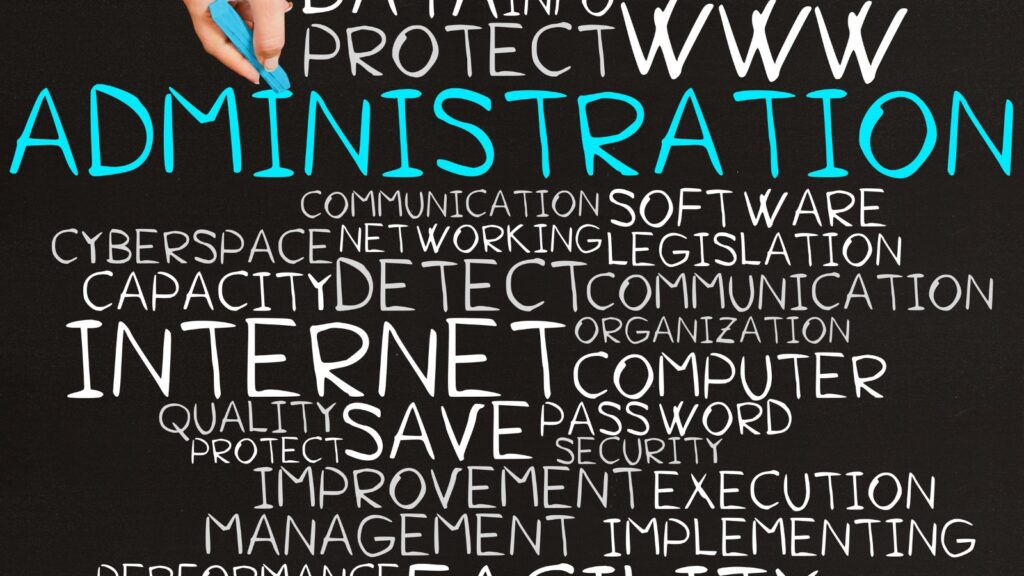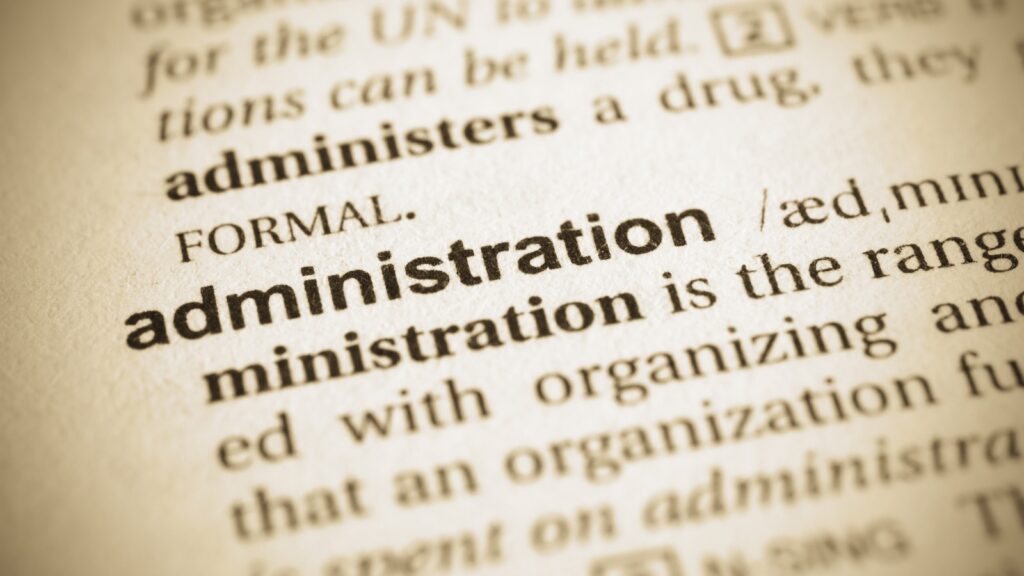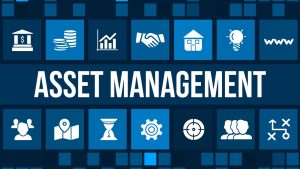Administrative competence can be defined as the backbone of an organisation, for it allows your company to drive with leadership success and value harvested from the bottom line. For businesses to succeed and run smoothly, administration is essential. It includes various duties and responsibilities for planning, controlling, and coordinating corporate activities. The administration’s strength and potential are vital since it enables a resilient business structure and backing for successful and efficient internal and external operations. It facilitates processes such as making decisions, communicating, complying with regulations, managing resources, providing customer support, and retaining records—all essential to a company’s long-term success and sustainability.
Companies can use the power of administration to optimise operations, promote growth, and achieve long-term success by learning the ins and outs of it; thus, today’s Tigernix article is presented as a guidebook for amateur business people with high hopes and prospective futures to understand administration from its core. It guides the reader in being confident in tailoring a single solution to boost administrative practices within a single effort.
Which Administrative Type is Most Apt for Your Business?

There are two main types of administration, namely public administration and business (or private) administration. What are the similarities and differences between the two? First, let’s define the two types of administration to get a clearer perspective.
Public Administration
The management and execution of public policies and initiatives inside governmental organisations or agencies is referred to as public administration. It entails resource coordination, decision-making procedures, and the delivery of public services to the general public. Public administration often works in the public sector and is concerned with advancing the common good. It includes budgeting, human resource management, intergovernmental relations, and public policy analysis.
Business / Private Administration
Conversely, business administration is concerned with running private businesses or other commercial organisations. It entails managing several corporate functions, including marketing, operations, financial management, and human resources. Maximising profitability, market share, and shareholder value are business administration goals. It operates in the private sector and is motivated by the dynamics of the market and the achievement of corporate goals.
Similarities and Differences of The Two Administrative Types?

- Effective decision-making processes based on analysis, review, and consideration of many elements are necessary for public and business administration.
- In both disciplines, organisational structure creation and maintenance are critical components in fostering organisational effectiveness, responsibility, and communication.
- Both areas include successfully managing financial resources, human capital, and operational assets to maximise performance and accomplish desired results.
- Similar management techniques, such as planning, organising, directing, and controlling, are used by both public administration and business administration to accomplish organisational goals.
- A wide range of stakeholders is served by public administration, including individuals, governmental organisations, elected politicians, and interest groups. The interests of shareholders, customers, and private owners are what business administration serves.
- The competitive environment, consumer demand, and market dynamics all have a significant impact on business administration. Despite being impacted by political and societal issues, public administration is less vulnerable to market forces.
- The framework for public administration includes public accountability, transparency, and adherence to statutory and regulatory frameworks. Operating under the legal and market-driven structures of the private sector, business administration is answerable to shareholders.
- While commercial administration seeks to maximise profits, market share, and shareholder value, public administration emphasises serving the public interest, carrying out public policies, and delivering services to residents.
- While corporate administration depends on income production through selling goods or services in the market, public administration depends on tax revenues and government financing.
Why is Administration Important for Modern Businesses?

Modern firms’ ability to succeed and endure depends heavily on administration. For several reasons, effective administration is crucial in today’s fast-paced and fiercely competitive industry. The administration is essential for modern firms because it supports decision-making, fosters communication and collaboration, and ensures that legal requirements are met. Businesses may adapt to shifting market conditions, maintain competition, and find long-term success with the help of practical administration. A solid administrative foundation is becoming increasingly crucial for business growth, profitability, and sustainability as they navigate the complexity of the modern world. To elaborate:
Efficient organisational workflow
The administration makes sure that a firm runs smoothly and efficiently. The use of resources, including human capital, money, and materials, is optimised by administrators by developing defined processes, procedures, and systems. As a result, production rises, waste declines, and overall effectiveness is enhanced. Businesses may meet client requests, provide goods or services on schedule, and maintain their competitiveness in the market by running their operations efficiently.
Ethicality, legality and compliance Reassured
The administration is crucial for meeting legal and regulatory requirements. Laws, rules, and industry standards provide the framework for modern enterprises. Administrators are responsible for comprehending and carrying out these regulations, guaranteeing that the business runs morally and legally. Companies can reduce legal risks, avoid fines, and protect their market reputation by maintaining compliance.
Seamless Collaboration and Unperturbed Communication
Administration promotes efficient collaboration and communication inside the company. Administrators operate as focal points of contact, ensuring information is easily shared between various teams, departments, and people. Employee collaboration, teamwork, and synergy are made more accessible, boosting productivity, problem-solving skills, and innovation. Achieving shared goals and fostering the expansion of modern enterprises depend on excellent coordination and open lines of communication.
Success-oriented Decision-making Capabilities
Administration offers valuable assistance for decision-making. Administrators gather, examine, and interpret data to produce insights that aid management in making well-informed decisions. Administration supports strategic planning, goal-setting, and risk assessment by monitoring market developments, consumer preferences, and internal performance. Making educated decisions is essential for adjusting to changes, grabbing opportunities, and maintaining a competitive edge in a corporate environment that is continually changing.
Skills and Talents of a Reliable Administrative Body
- Fantastic customer service orientation: Administrators frequently communicate with clients, consumers, and other stakeholders inside and outside the company. They are better equipped to deliver outstanding service, react quickly to questions or problems, and uphold satisfying connections when they have a customer service orientation.
- Confidentiality and ethics: Administrators regularly deal with sensitive data and are required to uphold tight secrecy. When handling sensitive information, protecting privacy, and sustaining moral standards within the company, they should have a strong sense of ethics, integrity, and professionalism.
- Continuous learning and unstoppable adaptation to changing environments: An effective administrative organisation employs continual learning, keeping abreast of market changes, best practices, and pertinent regulations. They are willing to adapt to changing circumstances, develop new skills, and accept change.
- Remarkable attention to intricate details in operations and workflows: In administrative positions, paying strong attention to detail ensures accuracy and precision in duties like record-keeping, data input, and paperwork. Administrators must be exacting, thorough, and able to detect mistakes or discrepancies.
- Exquisite time management: Administrators frequently have many tasks to complete and short timeframes. Prioritising work, managing time effectively, and meeting deadlines require practical time management abilities. Workflows and administrative operations perform smoothly when time limitations are addressed effectively.
- Hi-technology proficiency and updatedness: The use of numerous technology tools and applications is a requirement for administrators in the modern world. This may involve knowing how to handle information and streamline procedures utilising word processing programs, spreadsheets, databases, project management tools, and other applications.
- Essential communication skills: In administrative responsibilities, excellent communication is crucial. Administrators should possess outstanding written and verbal communication skills to effectively transmit information, promote collaboration, and sustain good relations with coworkers, clients, and stakeholders.
- Unchallenged problem-solving abilities: Administrative workers frequently need help with difficulties and challenges. They must have good problem-solving skills to assess situations, pinpoint problems, and develop workable solutions. A trustworthy administrative body can make an effective problem assessment and take the necessary steps to address it.
- Unrivalled adaptability and flexibility than competitors: A dependable administrative body can adjust to changing conditions, unforeseen events, and shifting priorities. This entails being receptive to fresh perspectives, adapting strategies as necessary, and embracing cutting-edge strategies to boost productivity and effectiveness.
- Unrivalled organisational skills: To effectively manage various responsibilities, schedules, and resources, administrators need extraordinary organisational abilities. Setting deadlines, prioritising tasks, and coordinating several studies simultaneously are examples of this.
Are You Ready to Scaffold Your Administrative Competence?
Finally, developing and scaffolding your administrative ability is a crucial step to personal and professional development. As discussed throughout this article, administrative competence comprises managerial capabilities, expertise, and attitudes essential for success in various jobs and responsibilities. Individuals can actively look for opportunities to advance their administrative competence by understanding the value of continual learning and self-improvement. One can develop practical organisational skills, communication talents, problem-solving approaches, and leadership traits through continued education, training, and real-world experience. These skills promote efficiency, productivity, and innovation inside organisations while helping individuals succeed personally.
To succeed on this path, it is essential to embrace the ideas of lifelong learning and adopting a growth mindset is vital. People can consistently broaden their knowledge, hone their abilities, and adapt to the demands of the administrative field by keeping open to new ideas, asking for feedback, and actively seeking opportunities for professional growth. But it’s crucial to remember that building administrative competence is a continuous process rather than a one-time project. It calls for commitment, tenacity, and a desire to advance personally. Although there may be setbacks and difficulties along the way, people may overcome them and keep improving their administrative competence with a resilient attitude and a focus on continuous progress.






